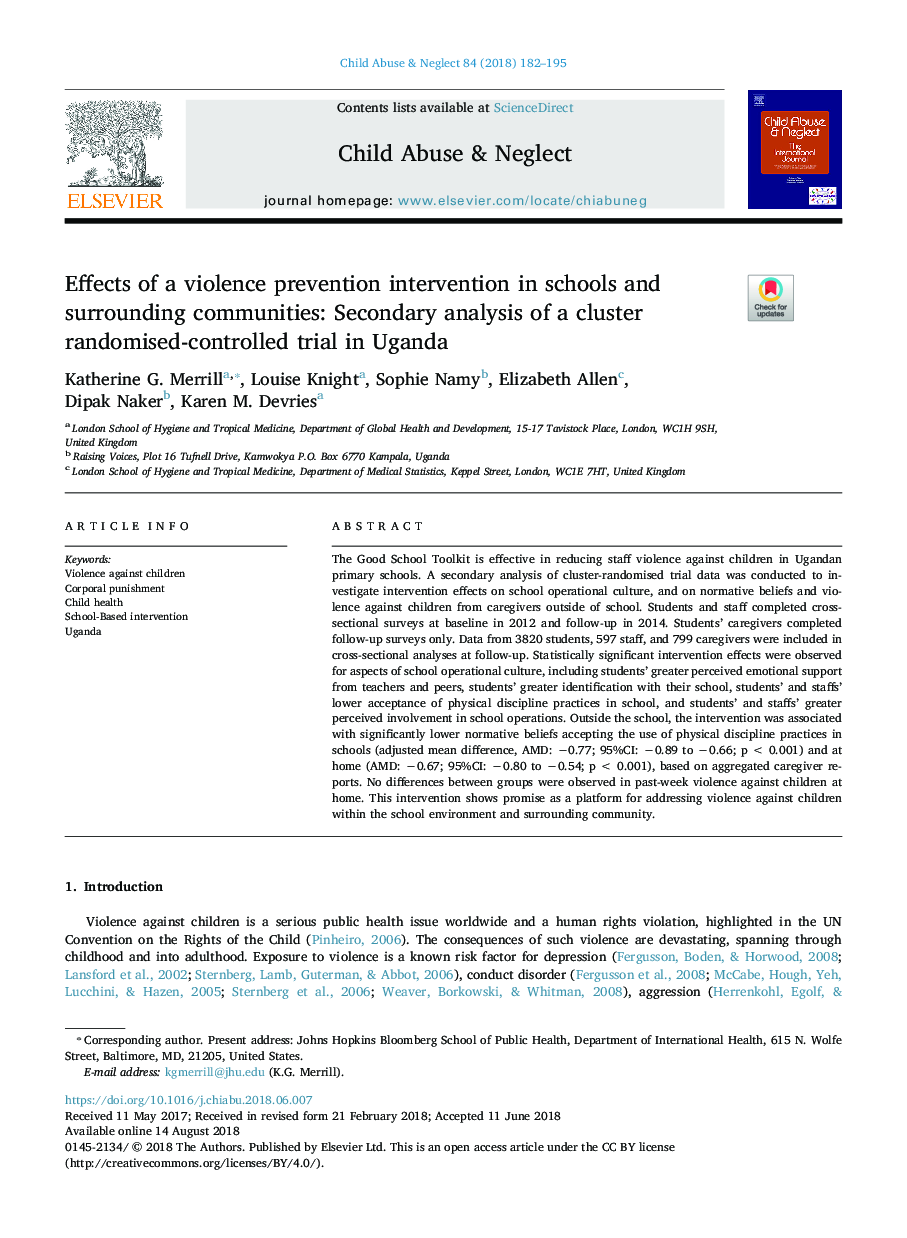| Article ID | Journal | Published Year | Pages | File Type |
|---|---|---|---|---|
| 6831711 | Child Abuse & Neglect | 2018 | 14 Pages |
Abstract
The Good School Toolkit is effective in reducing staff violence against children in Ugandan primary schools. A secondary analysis of cluster-randomised trial data was conducted to investigate intervention effects on school operational culture, and on normative beliefs and violence against children from caregivers outside of school. Students and staff completed cross-sectional surveys at baseline in 2012 and follow-up in 2014. Students' caregivers completed follow-up surveys only. Data from 3820 students, 597 staff, and 799 caregivers were included in cross-sectional analyses at follow-up. Statistically significant intervention effects were observed for aspects of school operational culture, including students' greater perceived emotional support from teachers and peers, students' greater identification with their school, students' and staffs' lower acceptance of physical discipline practices in school, and students' and staffs' greater perceived involvement in school operations. Outside the school, the intervention was associated with significantly lower normative beliefs accepting the use of physical discipline practices in schools (adjusted mean difference, AMD: â0.77; 95%CI: â0.89 to â0.66; pâ¯<â¯0.001) and at home (AMD: â0.67; 95%CI: â0.80 to â0.54; pâ¯<â¯0.001), based on aggregated caregiver reports. No differences between groups were observed in past-week violence against children at home. This intervention shows promise as a platform for addressing violence against children within the school environment and surrounding community.
Related Topics
Health Sciences
Medicine and Dentistry
Perinatology, Pediatrics and Child Health
Authors
Katherine G. Merrill, Louise Knight, Sophie Namy, Elizabeth Allen, Dipak Naker, Karen M. Devries,
